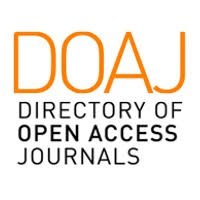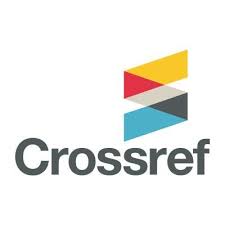Evaluation of Financial Management in Improving the Quality of Education at MA Al-Amin Islamic Boarding School
DOI:
https://doi.org/10.24269/muaddib.v14i1.9194Abstract
Evaluation is the most important stage of financial management. Evaluation of financial management has an influence on improving the quality of education starting from the quality of input, process and output. Based on this phenomenon or problem, researchers are interested in researching the evaluation of financial management in improving the quality of education at MA Al-Amin Islamic Boarding School Mojokerto. Based on this background, the objectives of this research are as follows: 1) To determine financial supervision at MA Al-Amin Islamic Boarding School Mojokerto. 2) To find out the form of financial accountability at MA Al-Amin Islamic Boarding School Mojokerto. This research uses descriptive qualitative research with a case study approach, to collect data researchers use observation, interview and documentation techniques. The results of this research are: evaluation of financial management in improving the quality of education at MA Al-Amin Islamic Boarding School Mojokerto manages finances very well by conducting routine and ongoing financial evaluations to be able to improve the quality of educational supporting facilities and infrastructure, namely in the form of developing digital media, among others. others are ADILS (Al-Amin digital Learning system), ALIMS (Al-Amin Library management system), as well as non-cash based transactions A-Cash and A-Smart.
References
Anwar, K., Hendrik, M., Waruwu, Y., Suyitno, S., & Dewi, C. (2022). Pengaruh Sarana Prasarana Pendidikan dan Kompetensi Guru Terhadap Mutu Pendidikan di Sekolah Menengah Kejuruan. Al-Mada: Jurnal Agama, Sosial, Dan Budaya, 5(3), 413–426. https://doi.org/10.31538/almada.v5i3.2659
Arasyki, R. (2021, November 29). Tahun 2022, Porsi APBN Terbesar untuk Sektor Pendidikan. kb.id.
Aspers, P., & Corte, U. (2019). What is Qualitative in Qualitative Research. Qualitative Sociology, 42(2), 139–160. https://doi.org/10.1007/s11133-019-9413-7
Bernheim, B. D., Garrett, D. M., & Maki, D. M. (2001). Education and saving: The long-term effects of high school financial curriculum mandates. Journal of Public Economics, 80(3), 435–465. https://doi.org/10.1016/S0047-2727(00)00120-1
Chairyani, D., Rahman, K. A., & Muazza, M. (2022). Pengaruh Biaya Pendidikan Terhadap Mutu Sekolah Di Sekolah Menengah Pertama Swasta. Jurnal Visionary : Penelitian Dan Pengembangan Dibidang Administrasi Pendidikan, 10(2), 73–78. https://doi.org/10.33394/vis.v10i2.6162
Fadilah, N., Haeruddin, M. I. M., & Nurman. (2023). Penerapan Manajemen Keuangan Sekolah Di Smp Negeri 1 Bajeng Kabupaten Gowa. MANABIS: Jurnal Manajemen Dan Bisnis, 2(2), 161–172. https://doi.org/10.54259/manabis.v2i2.1775
Gerring, J. (2017). Qualitative Methods. Annual Review of Political Science, 20(1), 15–36. https://doi.org/10.1146/annurev-polisci-092415-024158
Hartanto, T. M. B., Susanto, N., Saputra, N., Abdussyukur, A., & Kartiko, A. (2022). The Influence of Teacher Professional Competence on Education Quality Through Infrastructure as an Intervening Variable. Tafkir: Interdisciplinary Journal of Islamic Education, 3(2), 245–260. https://doi.org/10.31538/tijie.v3i2.269
Huang, F. (2018). Higher education financing in Japan: Trends and challenges. International Journal of Educational Development, 58, 106–115. https://doi.org/10.1016/j.ijedudev.2016.12.010
Jahari, J., & Syarbini, A. (2013). Manajemen Madrasah: Teori, Strategi, dan Implementasi (Cet.1). Bandung: Alfabeta. Diambil dari https://eperpus.kemenag.go.id/web/index.php?p=show_detail&id=42035
Katni, K., Arifin, S., & Erwahyudin, D. D. (2023). Implementation of Total Quality Management in Tahfidz Education at SMA Muhammadiyah 1 Ponorogo. Muaddib: Studi Kependidikan Dan Keislaman, 13(2), 136–144.
Komariyah, S., Nurhidayah, N., Andriyana, N., & Murtafi’ah, N. H. (2022). Manajemen Pembiayaan Pendidikan Yang Efektif Untuk Meningkatkan Mutu Pendidikan. Al Wildan: Jurnal Manajemen Pendidikan Islam, 1(2), 78–86. https://doi.org/10.57146/alwildan.v1i2.671
Koridin, K., & Pujiyati, W. (2019). Pengaruh Manajemen Keuangan Dan Manajemen Sarana Prasarana Terhadap Mutu Proses Pembelajaran Pada Sekolah Dasar Di Wilayah Unit Pengawas Tingkat Dinas (Uptd) Pendidikan Balongan Kabupaten Indramayu. Didaktik : Jurnal Ilmiah PGSD STKIP Subang, 5(1), 97–112. https://doi.org/10.36989/didaktik.v5i1.87
L. Haven, T., & Van Grootel, Dr. L. (2019). Preregistering qualitative research. Accountability in Research, 26(3), 229–244. https://doi.org/10.1080/08989621.2019.1580147
Miles, M. B., Huberman, A. M., & Saldana, J. (2013). Qualitative Data Analysis: A Methods Sourcebook. SAGE Publications.
Muhadi, I., Giyoto, G., & Untari, L. (2021). Tata Kelola Stakeholder dalam Meningkatkan Mutu Pendidikan Pada Madrasah Tsanawiyah. Jurnal Ilmiah Ekonomi Islam, 7(1), 256–265. https://doi.org/10.29040/jiei.v7i1.2209
Munib, M., Farida, S., Rohim, R., Badruttamam, B., & Faddol, M. (2022). Manajemen Keuangan Dalam Kebijakan Pendidikan Gratis. IQTISODINA, 5(2), 18–28.
Munzir, M., Zulkifli, Z., Sabaria, S., Wanda, R. F., Way, A., & Marchivanalia, P. O. (2024). Assistance in preparing financial reports for houses of worship with ISAK 35 standards in Sorong. Journal of Community Service and Empowerment, 5(1), 147–154.
Pujiharti, E. S. (2023). Manajemen Keuangan Yang Efektif Dalam Meningkatkan Mutu Pendidikan Sekolah/Madrasah. An-Nahdliyah: Jurnal Manajemen Pendidikan Islam, 2(1), 37–52.
Putra, I. P. (2022, Desember). JPPI : Kasus Korupsi di Sekolah Pada 2023 Meningkat 100% Bila Integritas Tak DIbenahi. Medcom. Diambil dari https://www.medcom.id/pendidikan/news-pendidikan/xkEj0yrK-jppi-kasus-korupsi-di-sekolah-pada-2023-bisa-meningkat-100-bila-integritas-tak-dibenahi
Riinawati, R. (2021). Education Financial Management during Covid-19 Pandemic of Islamic Universities in South Kalimantan. Dinamika Ilmu, 21(2), 383–396. https://doi.org/10.21093/di.v21i2.3607
Rivai, A. (2020). Pengaruh Kepemimpinan Transformasional dan Budaya Organisasi Terhadap Kinerja Karyawan. Maneggio: Jurnal Ilmiah Magister Manajemen, 3(2), 213–223. https://doi.org/10.30596/maneggio.v3i2.5291
Utama, D. A., & Setiyani, R. (2014). Pengaruh Transparansi, Akuntabilitas, Dan Responsibilitas Pengelolaan Keuangan Sekolah Terhadap Kinerja Guru. Dinamika Pendidikan, 9(2). https://doi.org/10.15294/dp.v9i2.4886
Waruwu, Y., Rahmadani, D., Mayasari, E., Idrus, I., & Kartiko, A. (2022). Manajemen Keuangan Dalam Meningkatkan Mutu Pendidikan. Al-Mada: Jurnal Agama, Sosial, Dan Budaya, 5(3), 440–450. https://doi.org/10.31538/almada.v5i3.2701
Watson, R. (2015). Quantitative research. Nursing Standard, 29(31). https://doi.org/10.7748/ns.29.31.44.e8681
Downloads
Published
Issue
Section
License

MUADDIB:Studi Kependidikan dan Keislaman is licensed under a Creative Commons Attribution-ShareAlike 4.0 International License.














